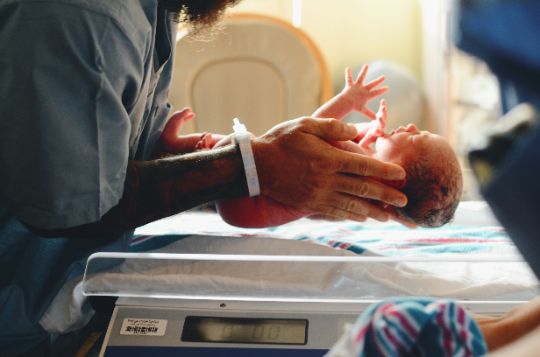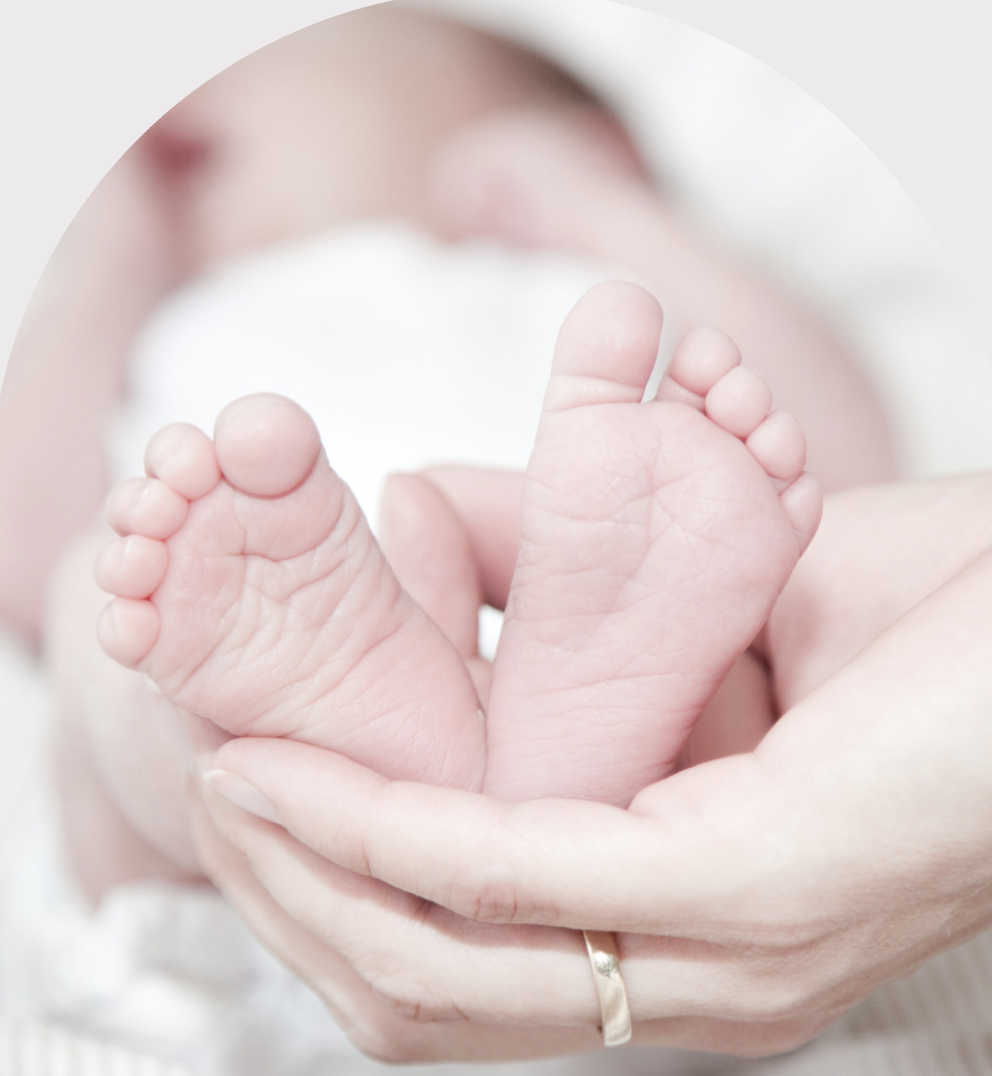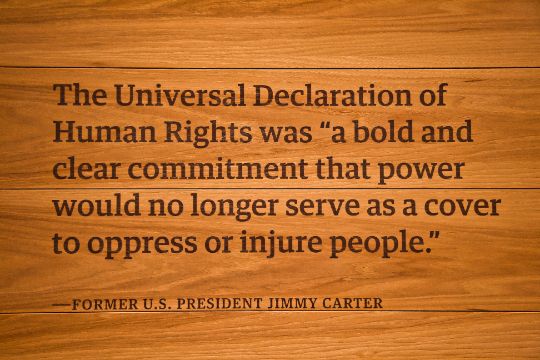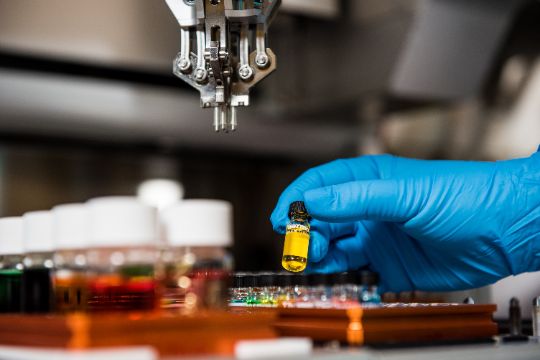
Press Release: CHCA California Biobank Transparency Bill Signed into law
Sacramento, September 25, 2024 -- California Health Coalition Advocacy is proud to announce that the bill we sponsored this year, SB 1099 Newborn screening: genetic diseases: blood samples collected, passed through the California legislature and has been signed into law by the governor. SB 1099, authored by Senator Nguyen of Orange County, will bring much needed transparency to the activities of the California Biobank.
Read full press release below.
California Health Coalition Advocacy Sponsored Bill
Will Bring Transparency to the California Biobank
Sacramento, September 25, 2024 -- California Health Coalition Advocacy is proud to announce that the bill we sponsored this year, SB 1099 Newborn screening: genetic diseases: blood samples collected, passed through the California legislature and has been signed into law by the governor. SB 1099, authored by Senator Nguyen of Orange County, will bring much needed transparency to the activities of the California Biobank.
Each year in California, hundreds of thousands of newborn screenings are performed to detect genetic conditions. In addition, hundreds of thousands of prenatal screenings are performed to evaluate the risk of certain birth defects, and pregnant mothers have the option to allow residual blood samples to be stored and used for research. California indefinitely stores the residual blood samples in the California Biobank and makes them available to third party researchers, and in the case of newborn residual samples, without the consent of parents.
The genetic material of mothers and children is being stored and used for research for public health purposes, but there is no transparency into: how many entities are utilizing the residual blood samples, how many residual blood samples are being used for research, or what specific public health benefits have been achieved.
SB 1099 ensures that the public has access to information about the activities of the California Biobank by requiring CDPH to annually prepare a report, deliver a copy of the report to the Legislature, and post the report on their website. The report would be required to contain information such as: the total number of residual screening specimens stored at the Biobank, the number of inheritable conditions identified the previous year, the number of projects utilizing specimens from the Biobank and the number of specimens each project is using, the number of published research studies that used or referenced biospecimens from the Biobank, and the potentially substantial public health benefit from the research.
“Parents in California are concerned about the genetic privacy of their children and have a vested interest in knowing what happens to their child’s blood sample after newborn testing is completed,” said Valerie Noble, president and co-founder of California Health Coalition Advocacy. “CHCA is shining a light on the newborn screening program in California and will continue to push for more information and options for parents when it comes to the storage and research use of newborn residual blood samples.”
This much needed transparency into California’s massive newborn DNA biobank is a first step, but CHCA plans to bring additional legislation to ensure that parents receive important information and options to protect their child’s genetic privacy.

California Health Coalition Advocacy Sponsors Bill to Protect the Genetic Privacy of Children
SACRAMENTO, Calif., March 2, 2023 /PRNewswire/ -- In an effort to protect the genetic privacy of children, California Health Coalition Advocacy, a non-profit organization based in Sacramento, has sponsored a bill, "SB 625 Newborn screening: genetic diseases: blood samples collected," introduced by Senator Nguyen on February 16, 2023.
Each year in California, hundreds of thousands of newborn screenings are performed to detect genetic conditions. The blood specimen and information obtained during the testing process become the property of the state. California indefinitely stores the residual blood samples and makes them available to third party researchers without the consent of parents.
These blood samples contain a wealth of personal information on our children, from eye and hair color to predisposition to diseases. This genomic data is highly distinguishable and cannot be truly de-identified. Many, including the ACLU, are concerned about law enforcement using residual newborn blood samples in their search for suspects through Investigative Genetic Genealogy.
"As a parent, I am concerned with the lack of transparency that surrounds this process," said Senator Nguyen. "Families in California should be fully informed of what genetic data is being collected by the state and should be fully aware of how that data is handled."
In 2021, California passed the Genetic Information Privacy Act to protect the genetic information of consumers with regard to certain genetic tests and to require express consent for collection, use, or disclosure of the consumer's genetic data. The Act specifically excludes the California Newborn Screening Program.
SB 625 would require consent for the storage of a newborn's residual blood sample and the use of the sample for research purposes. It would require written acknowledgment from the parent or guardian that they have received information regarding the storage, retention, and use of the newborn child's blood sample for medical research. In addition, the bill would prohibit any residual newborn screening specimen from being released to any person or entity for law enforcement purposes.
"This is a common sense bill that would enable parents to protect their children's personal medical information," said Valerie Noble, president and co-founder of California Health Coalition Advocacy. "Current law requires patient consent for pregnancy blood samples to be used for research purposes, and this standard would apply to newborn screening samples if this bill is passed."

California Health Coalition Advocacy Sponsors Resolution to Protect Voluntary and Informed Consent
SACRAMENTO, Calif., Aug. 26, 2021 /PRNewswire/ -- California Health Coalition Advocacy, a non-profit organization based in Sacramento, has been inundated with calls and messages from desperate workers and students concerned that receiving a COVID-19 vaccine is a condition of their employment and education. In an effort to push against mandates, California Health Coalition Advocacy has sponsored a resolution, "SCR 59 Medical interventions: voluntary and informed consent," introduced by Senator Melendez on August 18, 2021. The resolution would urge the Legislature and the Governor to take actions to protect Californians' right to make their own healthcare decisions. While a resolution is not a law, it can be used to impact the interpretation of laws and to support or defeat the passage of laws. As resistance to mandates grows, California Health Coalition Advocacy encourages lawmakers to support SCR 59.
When state and private entities enact COVID-19 vaccine requirements, they neglect to address a myriad of unintended consequences. The vaccine verification or exemption process reveals personal medical or religious information that should be kept private. Those who are disabled, pregnant, or trying to become pregnant object to being treated differently in the workplace or at school. Nurses and doctors who have been on the frontlines of the pandemic, often working without adequate PPE, and once hailed as heroes, are now being threatened with termination if they do not comply. Many health facilities might not survive if unvaccinated workers are fired, quit, or retired early. Reports of unvaccinated patients being denied medical care, students getting kicked out of college, and employees losing their jobs are widespread. One-size-fits-all does not apply when protecting the health and genetic diversity of Californians. Mandating a vaccine represents a violation of basic human rights and disproportionately affects low income and disadvantaged people who are more likely to be victimized by coercive laws.
"Rather than using and encouraging these heavy handed, strong-arm tactics to coerce people to receive a medical intervention they do not want, our elected officials should be protecting the fundamental right of all individuals to make their own health care decisions," said Valerie Noble, president and co-founder of California Health Coalition Advocacy. "All medical interventions come with known and unknown risks and often these risks place an unequal burden on individuals who are predisposed to suffering harm from treatments."

COVID-19 Response Shines Light on Need for Civil Liberty Protections: California Organization Drafts Bill to Fix Health and Safety Code
Source: California Health Coalition Advocacy | Wed, 10 Jun 2020, 09:00:22 EDT
SACRAMENTO, Calif., June 10, 2020 (SEND2PRESS NEWSWIRE) — In an effort to protect the right to body autonomy, California Health Coalition Advocacy (CHCA) has drafted legislation that would protect the right to refuse a long list of medical and non-medical interventions issued by the California Department of Public Health and Governor Newsom.
The organization points out that in the midst of the COVID-19 pandemic, there has been an onslaught of Governor’s orders as well as an unusually high number of intrusive County Health Department ordinances. The breadth of powers granted, especially to unelected officials in county health offices, has surprised legislators and county supervisors.
Local Health Officers, who are not elected by their county constituents, have taken broad control of the response to this pandemic and created ordinances that come dangerously close to, if not outright, violating the right of Californians to decide how they manage their personal health choices.
“The right to refuse is based on fundamental constitutional principles. The sovereign nature of people necessitates that they be free and independent in all aspects of their life, liberty and the pursuit of happiness without interference from governmental power structures, and these inalienable rights need perpetual protection,” said Diane Miller, who drafted the bill’s language and who is also an attorney and Legal and Public Policy Director of National Health Freedom Coalition. This bill would ensure that the right to refuse stays intact.
CHCA’s “Personal Rights During Infectious Outbreak and State of Emergency” bill would add Section 120137 to the health and safety code. Its main accomplishment would be to establish the right to refuse requirements and restrictions recently experienced by Californians.
The bill language stipulates the following: “… individuals retain the right to be free and independent and maintain their inalienable and fundamental rights including but not limited to the right to refuse the following activities whether for direct response or prevention: medical treatments or procedures; testing; physical or mental examination; vaccination; experimental procedures and protocols; collection of specimens; participation in tracking or tracing programs; the wearing of masks; the maintaining of measured distance from other humans and animals that is not otherwise unlawful; and the involuntary sharing of personal data or medical information.”
“The power of California’s Public Health Department has increased unchecked since the mid-90s. With the pandemic, the extent to which the local health officer can restrict the civil liberties of individuals has become apparent,” stated Valerie Noble, president of CHCA. “They have the authority to take possession of a living body, destroy property and pets, and take any action they deem necessary, whether or not those actions are evidence-based. Furthermore, a person who refuses to comply with an order is guilty of a misdemeanor, punishable by fines and imprisonment. It is of utmost urgency that the rights of individuals during disease outbreaks are defined and protected.”
California Health Coalition Advocacy is actively seeking a legislator to author their urgency bill.
About California Health Coalition Advocacy:
California Health Coalition Advocacy is a 501(c)(4) non-profit organization that initiates and influences laws and policies to expand, protect, and promote the health and well-being of Californians. This includes the right to access, consent to, and refuse products, services, treatments, information, education, exposures, and environments.

FOR IMMEDIATE RELEASE
Contact: Valerie Noble Email: valerie@californiahealthcoalition.org
Prominent Vaccinologists Caution Against Accelerating COVID-19 Vaccine to Market Amid Pandemic, Public Health Resolution Needed to Raise Awareness
(Sacramento, CA, March 26, 2020) – Two prominent vaccinologists, Dr. Peter Hotez and Dr. Paul Offit, have separately come out against rushing a COVID-19 vaccine to market. They have joined a growing number of professionals in the field of vaccine development and implementation to express concern and alarm about fast-tracking a COVID-19 vaccine without adequate safety testing.
“I understand the importance of accelerating timelines for vaccines in general, but from everything I know, this is not the vaccine to be doing it with,” said Dr. Peter Hotez, Dean of the National School of Tropical Medicine at Baylor College of Medicine and developer of a SARS vaccine. Hotez urged researchers to “carry out the process very cautiously,” saying that in his own studies, he “found that some vaccinated animals developed more severe disease compared with unvaccinated animals when they were exposed to the virus” due to “immune enhancement”. 1, 2, 3
“If you’re going to be testing this in otherwise healthy people who are very, very unlikely to die from this infection, you better make sure it’s safe,” said Dr. Paul Offit, director of the Vaccine Education Center at Children’s Hospital of Philadelphia, when speaking about COVID-19 vaccine development. 4
At the recent World Health Organization’s Global Vaccine Safety Summit in Geneva, Switzerland, experts expressed concerns over the need for better vaccine safety science in general. “There’s a lot of safety science that’s needed, and without the good science we can’t have good communication. So, although I’m talking about all these other contextual issues and communication issues, it absolutely needs the science as the backbone. You can’t repurpose the same old science to make it sound better if you don’t have the science that’s relevant to the new problem. So, we need much more investment in safety science,” said Dr. Heidi Larson, MA PhD Anthropologist, Director of The Vaccine Confidence Project. 5
Dr. Soumya Swaminathan, Chief Scientist at the World Health Organization, expressed concern about vaccine safety monitoring at that same summit. She stated,“We can not overemphasize the fact that we don’t have any good safety monitoring systems in many countries and this adds to the miscommunication and the misapprehensions because we are not able to give clear cut answers when people ask questions about the deaths that have occurred due to particular vaccine and this always gets blown up in the media. One should be able to give a very factual account of what has happened and what the cause of deaths are, but in most cases there is some obfuscation at that level and therefore there is less and less trust then in the system.”5
In an effort to address these types of concerns, California Health Coalition Advocacy, a California-based non-profit organization, has written an 18-point public health resolution and is asking for a lawmaker to present it to the state legislature. California Health Coalition Advocacy’s resolution expresses the need for the laws of the State of California to reflect the foundational importance of the physician-patient relationship, the importance of informed consent, acknowledgment of ongoing advances in medicine, the breadth of approaches to medical care, and the use of precautionary principles when discerning the role of government as it may impact the health of individuals. The resolution would raise awareness about vaccine safety, potential adverse injuries, and monitoring systems.
"It is of utmost importance that lawmakers recognize that inherent dangers exist in vaccine development and administration, and make sure to protect their constituents from these dangers. California leadership has taken careful steps to mitigate COVID-19. They should heed the warnings of these prominent voices in the field of vaccinology and use extreme caution when considering legislation and executive orders as they relate to vaccinations," said Dr. Kathleen Miller, co-founder and board member of California Health Coalition Advocacy, headquartered in Sacramento.
If you would like more information about this and California Health Coalition Advocacy’s Resolution, please email Valerie Noble, valerie@californiahealthcoalition.org.
1 Majumder, Bhaswati Guha. “Who Is Peter Hotez? Doctor Reveals Coronavirus Vaccine Was Ready Years Ago but Trial Never Happened.” International Business Times, Singapore Edition, 7 Mar. 2020, www.ibtimes.sg/who-peter-hotez-doctor-reveals-coronavirus-vaccine-was-ready-years-ago-trial-never-happened-40530.
2 Steenhuysen, Julie. “As Pressure for Coronavirus Vaccine Mounts, Scientists Debate Risks of Accelerated Testing.” Reuters, Thomson Reuters, 11 Mar. 2020, www.reuters.com/article/us-health-coronavirus-vaccines-insight-idUSKBN20Y1GZ.
3 Tseng, Chien-Te, et al. “Immunization with SARS Coronavirus Vaccines Leads to Pulmonary Immunopathology on Challenge with the SARS Virus.” PloS One, Public Library of Science, 2012, www.ncbi.nlm.nih.gov/pmc/articles/PMC3335060/?fbclid=IwAR0nk4UmzQKjNahanFn9amNropz38gbEYosriUxj6EqmLsz8pwiRvJkJrPk.
4 Gutman, Abraham. “Philly Vaccine Pioneer: We Can't Rush a Coronavirus Vaccine: Q&A.” Https://Www.inquirer.com, Staff, 6 Mar. 2020, www.inquirer.com/health/coronavirus/coronavirus-covid-19-vaccine-trump-paul-offit-20200306.html.
5 “Global Vaccine Safety Summit.” World Health Organization, World Health Organization, www.who.int/news-room/events/detail/2019/12/02/default-calendar/global-vaccine-safety-summit.